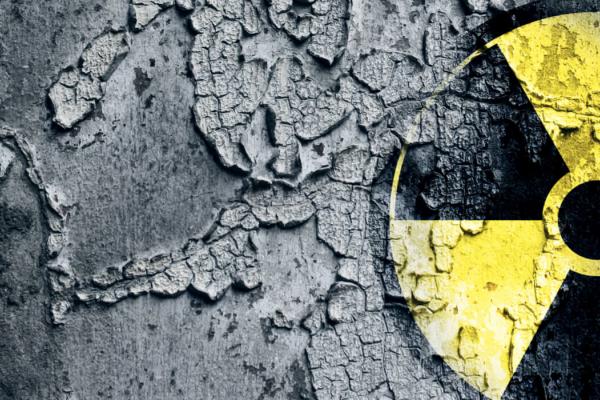Yesterday, Donald Trump made a statement that appears to threaten North Korea with nuclear war. Trump’s statement was prompted by the conclusion reached by some members of the U.S. intelligence community that North Korea has produced a nuclear warhead, as yet untested. Trump’s language was characteristically evocative:
“North Korea best not make any more threats to the United States. They will be met with fire and fury like the world has never seen ... [Kim Jong-un] has been very threatening beyond a normal state. They will be met with fire, fury and frankly power the likes of which this world has never seen before.”
Trump’s statement has been welcomed by some high-profile conservative Protestant Christians, a demographic that consistently registers considerably higher approval of his performance than the general public. Evangelical pastors have “laid hands” on Trump in the Oval Office. The Christian Broadcasting Network lauds the “spiritual awakening … underway at the White House.” Other groups insist that Trump’s presidency has been anointed by God. And now Robert Jeffress, the Southern Baptist megachurch pastor from Texas who campaigned hard for Trump and preached the sermon that Trump heard on the morning of his inauguration, has declared that “in the case of North Korea, God has given Trump authority to take out Kim Jong Un.”
Jeffress’s statement is ostensibly based on a passage in Romans 13. The dubious quality of his interpretation will undoubtedly be subjected to rigorous criticism over the coming days. Rather than respond to Jeffress or Trump directly, however, I want to introduce another voice to the conversation.
Helmut Gollwitzer was a German pastor, theologian, activist, and public intellectual active through the middle of the 20th century. He was associated with the Nazi party in the 1920s before life experience and studying theology led him to repudiate that ideology. As a pastor in the 1930s, Gollwitzer was silenced by the Gestapo and expelled from Berlin for speaking against Hitler’s government. He was then conscripted and compelled to serve in the German Armed forces. Gollwitzer served primarily in a medical corps before being captured on the Eastern front at the war’s end and living as a prisoner of war in Soviet Russia for five years.
Gollwitzer knew what it was like to resist in the name of Christian faith when the chest-beating postures of toxic masculinity converge with an unthinking nationalism, divorced from concern for and commitment to the common good of all humanity.
Furthermore, the issue of nuclear warfare concerned Gollwitzer deeply after his return from captivity. He had seen — up close and personally — the destruction of human life that conventional war produces, and he understood clearly the categorical escalation represented by atomic weapons. Consequently, he drew a line in the sand that all Americans — and, perhaps, especially Trump and Jeffress — would do well to ponder today: “Whoever has recourse to atomic warfare will have God against him” (“Christian in the Search,” p. 51).
For Gollwitzer, Christians must affirm that nuclear war is unacceptable. He is no absolute pacifist, however. Gollwitzer admits that coercion and even violence are sometimes necessary in order to maintain society’s just order. And he is willing to at least theoretically concede that conventional warfare may be an unavoidable part of maintaining that order. War can function in this way as anultima ratio — the final argument or last resort for resolving geopolitical conflict.
This is how war has functioned in traditional Christian just war theory: So long as the evil and injustice that war is waged to overcome outweigh the evils and injustice involved in waging that war, so long as there are no other options left to try, and so long as the war is waged with humane methods (e.g., no targeting of non-combatants), the war may be justified.
The problem with nuclear war, as Gollwitzer points out, is that its very nature explodes the boundaries of traditional just war theory. The evils and injustices — the suffering — produced by atomic weapons is of a qualitatively different magnitude than that produced by conventional weapons. Atomic fallout is impossible to control or contain, wrecking indiscriminate and potentially irreversible damage on populations and ecosystems. Indeed, given the right conditions, the escalation of nuclear war could well lead to the extinction of life as we know it on our planet, should a political regime with nuclear capabilities feel itself forced into making a choice “between capitulation and suicide” (“Christian in the Search,” p. 47).
Gollwitzer’s reflections also highlight the geopolitical dynamics of nuclear armament in a way that should give American Christians pause. We live in a world where some nations possess nuclear weapons while others do not, and where two nations account for over 90 percent of all nuclear weapons. This dramatic disparity in military power undermines the sovereignty of those states who lack nuclear weapons, or whose nuclear arsenal is comparatively small. And we must keep in mind that resentment concerning this disparity undoubtedly motivates regimes that feel marginalized by the status quo to develop nuclear capabilities.
The point is not that North Korea should be given free-reign by the international community to develop any and all weapons that it so chooses. But Gollwitzer would have American Christians remember that they are called to be a political influence in the service of peace. For Gollwitzer, you can tell whether Christians have understood the gospel by whether they reject war under nuclear conditions: “the ‘Yes’ to the Gospel and the ‘No’ to war today must go together — or both will be lost” (Demands of Freedom, p. 136.).
For Gollwitzer, the church does not exist to rubber-stamp the geopolitical status quo, or serve as an enabling institution for the government and its leaders’ worst neuroses. It exists to call the powers that be radically into question, to “be both a danger and a help to the world” (Dying and Living Lord, p. 95) — a help to the suffering and oppressed, and a danger to the powerful oppressors. One concrete way for the church to embody its dangerously helpful character is by denouncing nuclear war without caveat, reservation, or hesitation. And Christians must do so even if it means “the sacrifice of national interests to the cause of peace” (“Christian in the Search,” p. 52).
The threat of nuclear war once more clearly haunts the horizon. In a few days’ time, Christians from across the United States will assemble to worship. If Gollwitzer were with us today, he would not mince words in his message to the church in the United States: any church that denounces nuclear war, and rejects the possibility that Christians can conscientiously comply with and participate in nuclear war, is a church that preaches the gospel. Any church that does not, is not.
Got something to say about what you're reading? We value your feedback!





